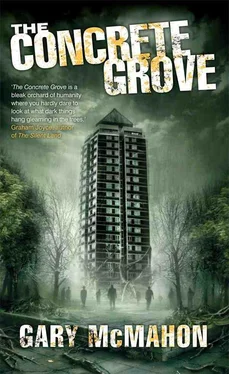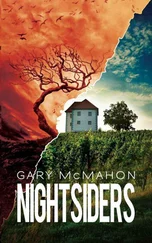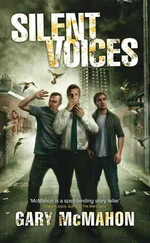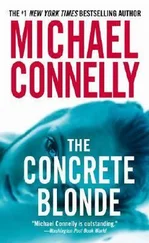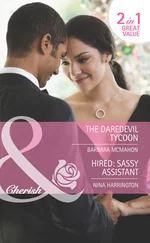The attempt to calm down was failing. Fear filled him, turning him into a repository for terrors he could not have imagined only days before. Why had he done it? There had been no real reason for his crime, and everyone knew what a bastard Monty Bright was, how he dished out his own brand of punishment to keep the Grove under his control. So why the fuck had Banjo taken the loan shark’s money?
He remembered everything so clearly, all the little details. It had been cold, crisp, and the stars were unusually bright, like little isolated lamps across the sky. He’d had the idea weeks before, when he was smoking spliffs and dropping cheap acid with an old girlfriend. They were bemoaning the fact that they were always skint, couldn’t ever afford to do anything interesting or buy any decent drugs, and Banjo had decided right then that he needed to do something to alter the course of his life, even if it was for just a weekend.
He thought it would be easy to pose as one of Bright’s collectors, and target some unsuspecting biddy who owed a payment on her loan. He even knew who to choose: old Mrs. Waits, from Grove Rise. Everyone knew she’d come into a bit of money, that when some distant cousin had died he had left her a few grand in his will. The old bird was so dotty she’d probably forget that he’d been to visit, and think nothing of paying twice… Alzheimer’s or something. Her memory was shot to shit.
But things hadn’t quite worked out the way he’d planned.
Yes, he’d gone round there, wearing his long leather coat, with his game face on, and acting like some TV tough-guy, and Mrs. Waits had given him the cash — five-hundred quid, right in his hand. When he’d walked out of her house, heading for the Unicorn to enjoy a couple of pints, score some quality coke and reflect on the success of his mission, he had even felt good about things. For once in his life, Banjo had made something work. He had bettered his situation.
Then, several days later, when the real collectors had gone round to see Mrs. Waits — the guy who always wore those leather gloves and the big fat one with a chip on his shoulder — the old bat had been able to give a good description of Banjo, and, when pressed, had even known his name. Turned out the estate gossips were wrong and she didn’t have Alzheimer’s after all. She was just old and slow, but her mind remained sharp.
That was the fatal flaw in Banjo’s plan. He had not even realised that the woman knew him, and her supposed mental condition had made him lax. He knew who she was, of course, but as far as he knew he was unknown to her.
As far as he knew.
In reality, of course, it turned out that she recognised him from years ago, when he’d worked in the FastFilm video rental shop on the Arcade, his first job after leaving school. His only job after leaving school, if he was honest: working a nine-to-five had never appealed to Banjo.
He’d considered leaving the Grove then, fleeing the area and perhaps heading south, to London. That’s what they always did in the movies — all the ones he’d watched free of charge in the back of the rental place where he’d once worked, his face bathed in the light of their reflected glory. But in those movies they always seemed to have more than five-hundred quid in their back pocket, and even if they didn’t, they always managed to pick up some additional pocket change along the way to fund their adventures.
Again, the reality was miles away from fiction; the truth, life’s truth, was never quite as promising as the truth of VHS.
The room was bare. The walls were covered in timber panelling, and the varnish was peeling. His mind was racing; his body was rushing from the drugs. The floor was concrete, hard and cold and uneven. The only furniture in the room, apart from the chair into which he was tied, was the coffee table with the lamp on it. There was nothing else, just two doors, facing each other from opposite walls.
The bloke with the leather gloves — what was his name? — had given Banjo a few slaps, back and front-handed, as if he were hitting a woman. The violence had been demeaning more than painful, although the blows had stung at the time. Now all he felt was a slight hot sensation across his cheeks, which moved around as his drug-rush developed. His eyes watered. The ball gag was drying out the inside of his mouth.
The lamp flickered. There was a slow, dragging sound from behind one of the doors. Nothing else. Just silence. Had he imagined it, or was somebody there?
Banjo had no idea how much time had passed, or whether it was night or day. They’d come for him at around two in the morning at least a couple of days ago, kicking down the door of the squat he’d been using as a bolt-hole and a shooting gallery to use the smack he’d spent a large portion of that five-hundred quid on. They dragged him outside, where they pushed him into the back of a car. He knew where they were taking him; everybody on the Grove was aware that Bright had rooms beneath the gym on Grove Lane, and he used them not just for storage but for other, less conventional functions. Even the police had knowledge of Bright’s underground lair, but they just left him alone to go about his business. As far as they were concerned, he kept the Grove under control.
There were rumours that he had bodies buried down here, in the foundations, under the concrete floor, even inside the walls. Banjo couldn’t be sure how much truth was in these stories, and had always doubted them, but right now, strapped into the chair, they had never seemed so real.
The lamp flickered again. He saw colours bursting behind the sudden glare.
Banjo closed his eyes to stop them watering. He tried to swallow but his throat was dry and his tongue felt as big as a side of beef in his mouth. His rush continued, gifting him a strange sense of ease. They’d been pumping him full of drugs — pure, uncut — since he got here. It felt like he hadn’t been clean and sober for weeks.
Footsteps approached from the other side of the door — which door, again he couldn’t be sure.
Somebody knocked, three times.
That was an odd thing to do, knocking on the door, as if whoever stood out there was a visitor and Banjo were not being held captive. He waited, listened, and the knocking came again. Three times, like a charm.
Then there was the sound of a key being inserted into the lock, moved around in the barrel; and finally the locked clicked. The door swung open without a sound. Banjo strained to turn his head and peer around at the door, to see who was coming in and hopefully appeal to their sense of pity. He flexed his hands behind him, making fists and opening them again, and tried to move his legs against the chair, maybe tip the whole thing over.
Darkness surged towards him, clashing with the drugs in his system. He knew that he wouldn’t come down from this sweet high for hours, and somewhere at the back of his mind he realised that by then it might be too late to make a difference.
“Be still.” The man who drifted towards him was not tall. He was broad, and his familiar face hung in the dimness like a ghostly apparition. There was nothing overtly threatening about the way he looked. Yet he was terrifying.
“Calm down or I’ll kill you right now.”
Banjo stopped struggling. The man’s voice — low, even, rather bland — acted like a physical restraint, even more so than the plastic ties which bound him to the chair.
“That’s better.” He walked around to stand before Banjo, his movements slow and deliberate. He was wearing a short black bomber jacket zipped up to the throat and dark denim jeans. His black hair was slicked back against his skull with some kind of product, as if he were stuck in the 1980s or had seen the film Wall Street too many times. To Banjo, in his messed-up state, that hair looked painted on, like some kind of lacquer. It glistened like a beetle’s carapace in the dimness. Banjo wanted to laugh.
Читать дальше
